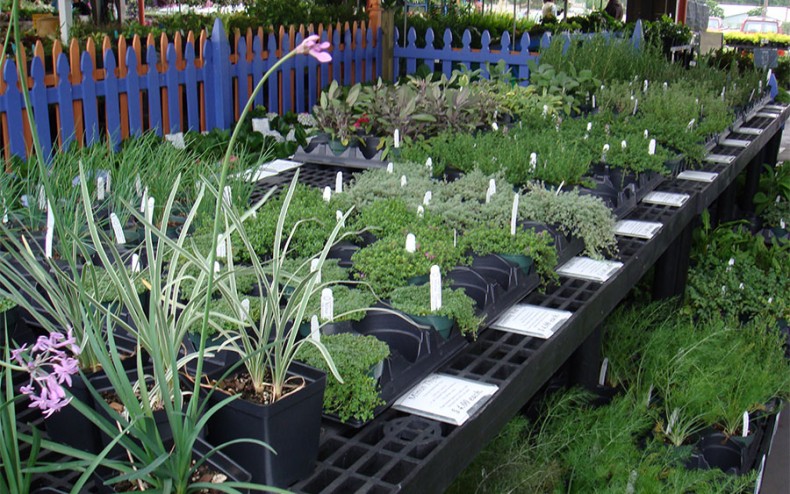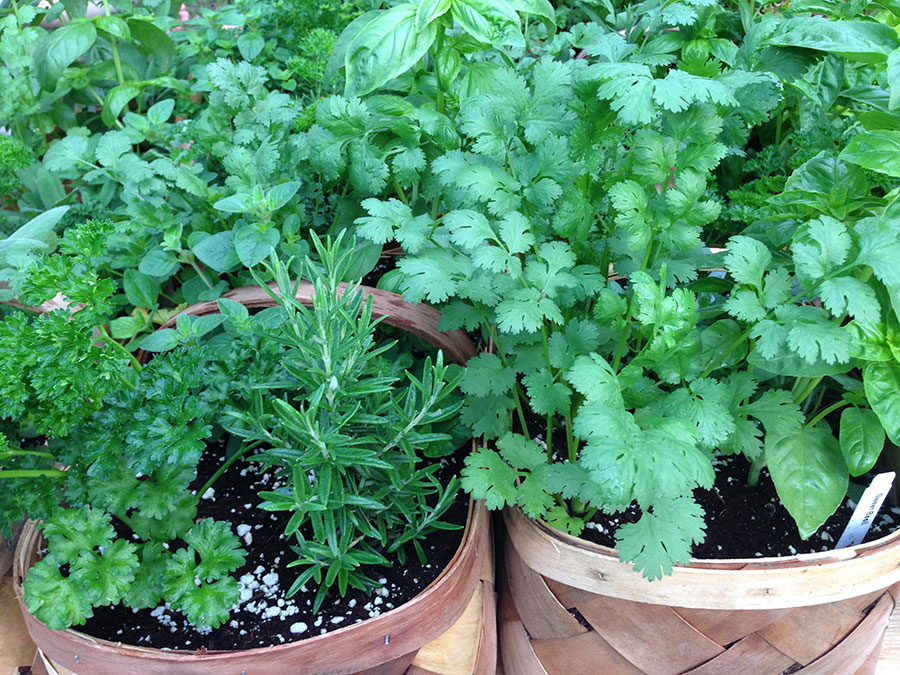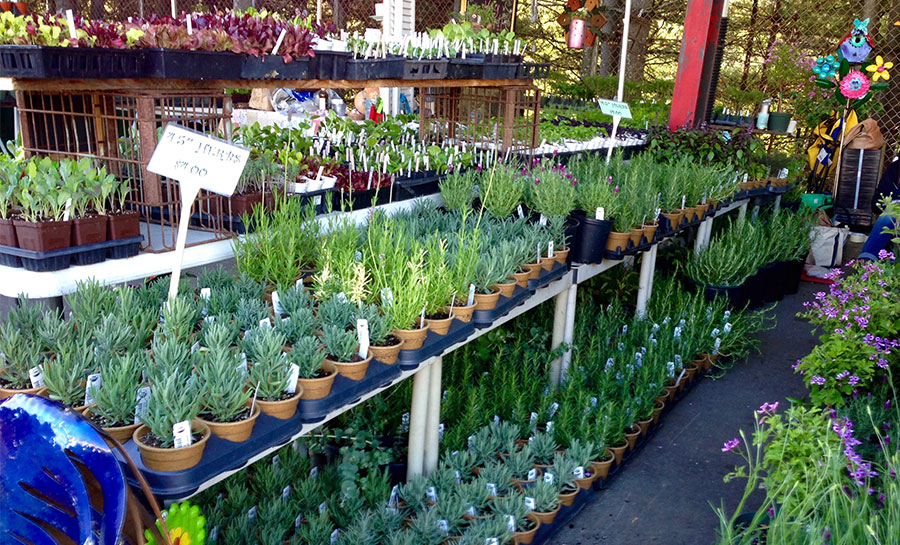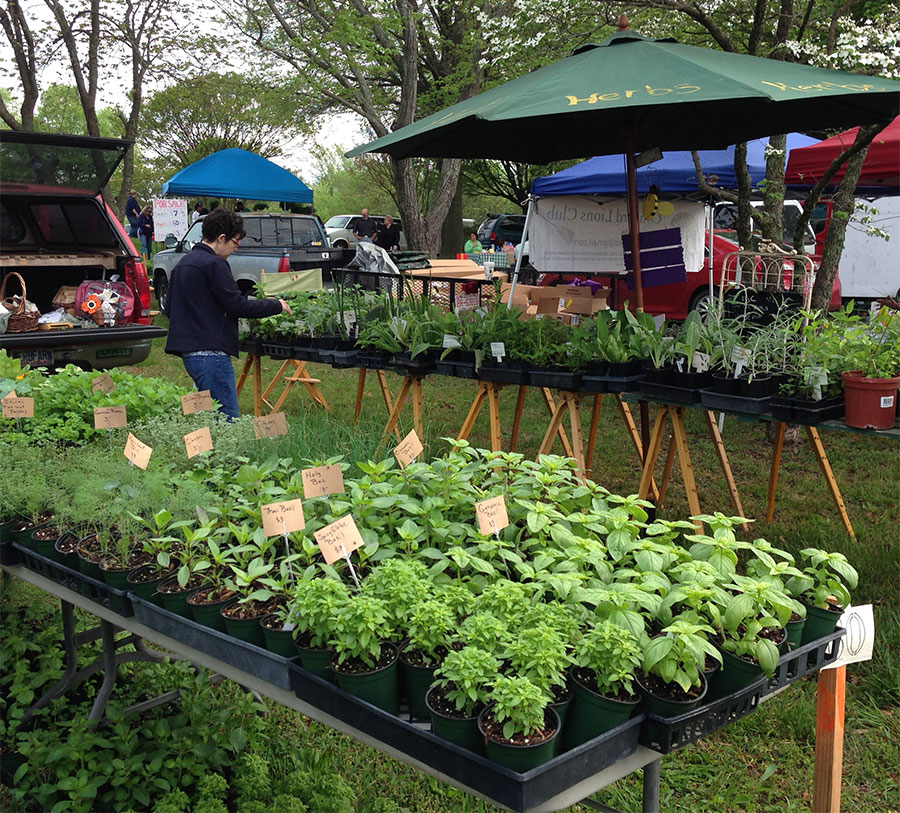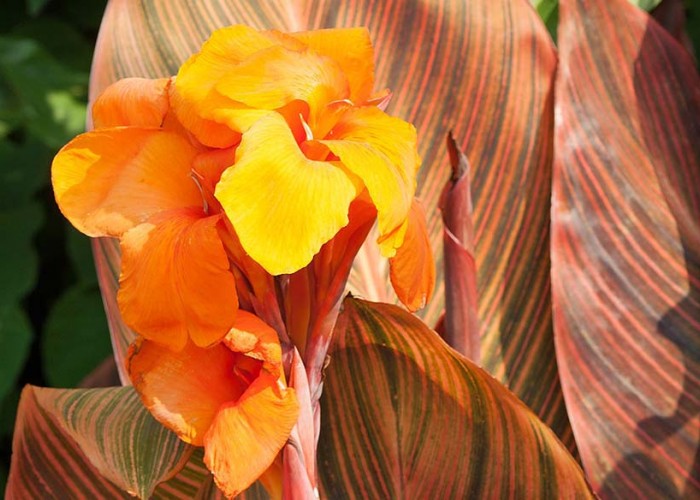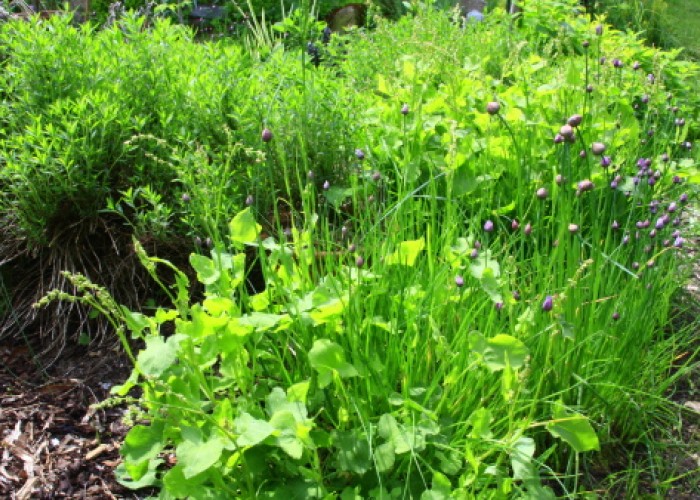Herbs for Everyone
Add these hearty kitchen necessities to any garden
By Leah Chester-DavisRows of herbs on display at the State Farmers Market.
Herbs are plants that are hard to resist.
They lend beauty, whether in the landscape or in a container on a patio. And they have many uses. A wide range of herbs will grow in North Carolina’s climate, from the mountains to the coast, offering lots of options, depending on your interests. Some are used medicinally. Others are used for fragrance or insect repellents in potpourris and sachets. When it comes to adding flair and flavor to a culinary dish, there’s nothing like fresh-picked herbs out of your garden.
“Everyone should have a kitchen garden,” says John Wrenn of J&B Herb and Plant Farm in Roxboro. “Rosemary, thyme, parsley, sage, basil, tarragon, mints have many culinary and medicinal qualities.”
A certified organic grower of about 120 different kinds of herbs, Wrenn and his business partner Burton Edwards grow culinary and medicinal herbs for their own use, as well as to sell to Whole Foods and more than 200 independent garden centers and hardware stores. Edwards usually travels the herb and gardening festival circuit in three states to sell herbs.
Worthy garden additions
Because herbs are relatively easy to grow in any climate, it’s worth adding them to your gardening mix.
“I always recommend people start with the basic kitchen herbs such as rosemary, thyme, sage, parsley, oregano, basil and a good mint,” he says. “But any herb that is for culinary use is indispensable. Look at your grocer’s spice section. It’s mainly herbs, and nothing beats the freshness of a fresh-cut herb to include in a recipe.”
The simplest ingredients — think fresh-picked tomatoes, olive oil, salt and pepper — are transformed with the addition of fresh basil leaves. Olive oil and fresh rosemary tossed with potatoes and then roasted elevate the dish to divine status. Often less salt is required due to the flavor punch that herbs add.
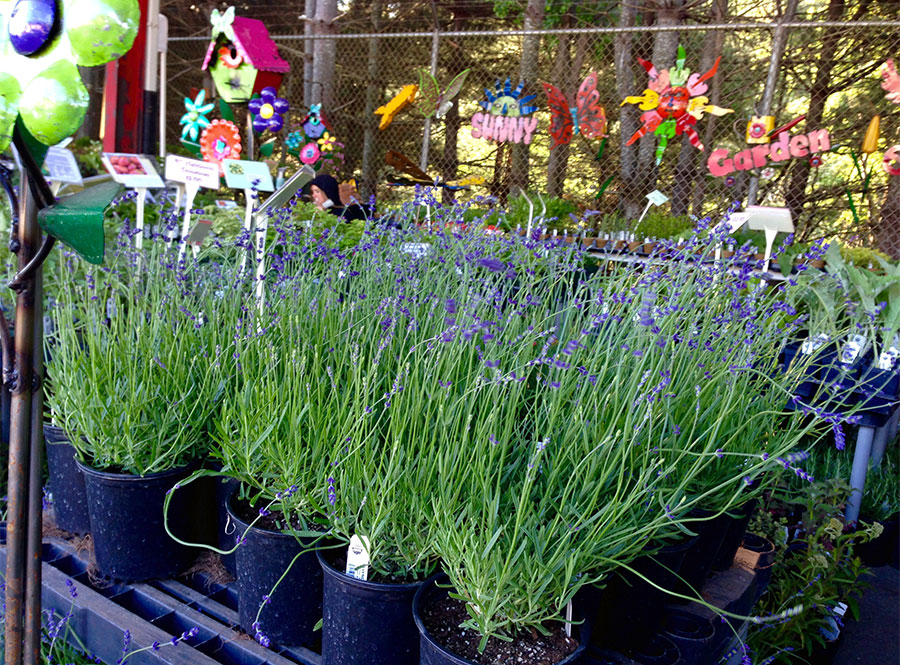
Lavender can spice up your herb garden with its lovely fragrance, and tolerates heat and dry spells when well rooted.
Herb planting tips
“Herbs are full-sun plants that like good drainage,” Wrenn explains. He attributes that to areas in the world where most herbs originate, which is usually a dry, sunny, sandy location.
While many coastal areas are ideal for herbs, according to Wrenn, too-sandy soil may need to be amended, as well as the clay-based soil in the Piedmont. In the mountain areas, some herbs that might make it in the Piedmont as a perennial may not be able to survive cold, windy mountain winters.
When planting, herbs will thrive in average soil with organic matter such as compost added to improve drainage and soil nutrients. Herbs dislike wet feet. Avoid areas where water stands or where there may be heavy runoff. Select a site that receives at least six hours of sun each day. The best bet when dealing with difficult soils may be to use raised beds (see Gardeners: Give Yourself a Raise).
Herbs will require little to no watering once established in the landscape.
“Herbs can do very well in containers,” Wrenn says, “and you need not worry about watering them on a daily basis. Pick the spot in your yard that gets the most sun, and just go for it.”
He suggests planting herbs among vegetables as insect repellents. If the soil has been amended with compost, they may not need any added fertilizer. Most herbs thrive without it. If adding fertilizer, do so sparingly.
Buddleia, commonly known as the butterfly bush, plays host to pollinators on J & B Herb and Plant Farm. Source: J & B on Facebook
Get growing
Don’t just dream about an herb garden — plant one! Even if you don’t have a garden plot, surely you have space for a container, and many herbs will be happy to take up residence there. Place the container in a sunny spot and you’ll be rewarded with herbs through the summer and into fall.
This spring, take advantage of one of the many herb festivals (see sidebar) or farmers markets (ncfarmfresh.com) across the state to talk with growers and to find a large selection from which to choose your herb garden favorites.
Upcoming Herb Festivals
Herb festivals across the state help usher in the gardening season each year. Here are a few 2018 festivals to consider (updated from our 2016 story Spring herb festivals help kick off gardening season):
26th Annual Herb & Garden Fair
April 7 & 8, 2018
Poplar Grove Plantation, Wilmington 910-686-9518
poplargrove.org/festivals
The area’s largest garden event features plants, classes and activities on gardening. In addition, perennials, annuals, hanging baskets, shrubs, native plants, vegetable starts and houseplants are also available along with garden art, accessories, herbal products, artisan crafts and local food.
2018 Spring Herb & Plant Festival
April 14, 2018
Cabarrus County Fairgrounds, Concord 704-920-3310
cabarrus.ces.ncsu.edu
More than 85 vendors showcase herbs, other plants and garden accessories at a new location for 2018. Master Gardener volunteers will be on hand to answer gardening questions.
29th Annual Asheville Spring Herb Festival
May 4–6, 2018
WNC Farmers Market, Asheville 828-253-1691
wncherbfestival.com
Considered by many growers and festival visitors to be the “granddaddy of them all,” the Asheville Herb Festival, one of the largest in the country, features hundreds of herb varieties, herbal medicine, gourmet cooking herbs, organic seeds, heirloom vegetable starts and gardening advice from Buncombe County Master Gardeners.
-
Uncover more herbs
-
Share this story:

